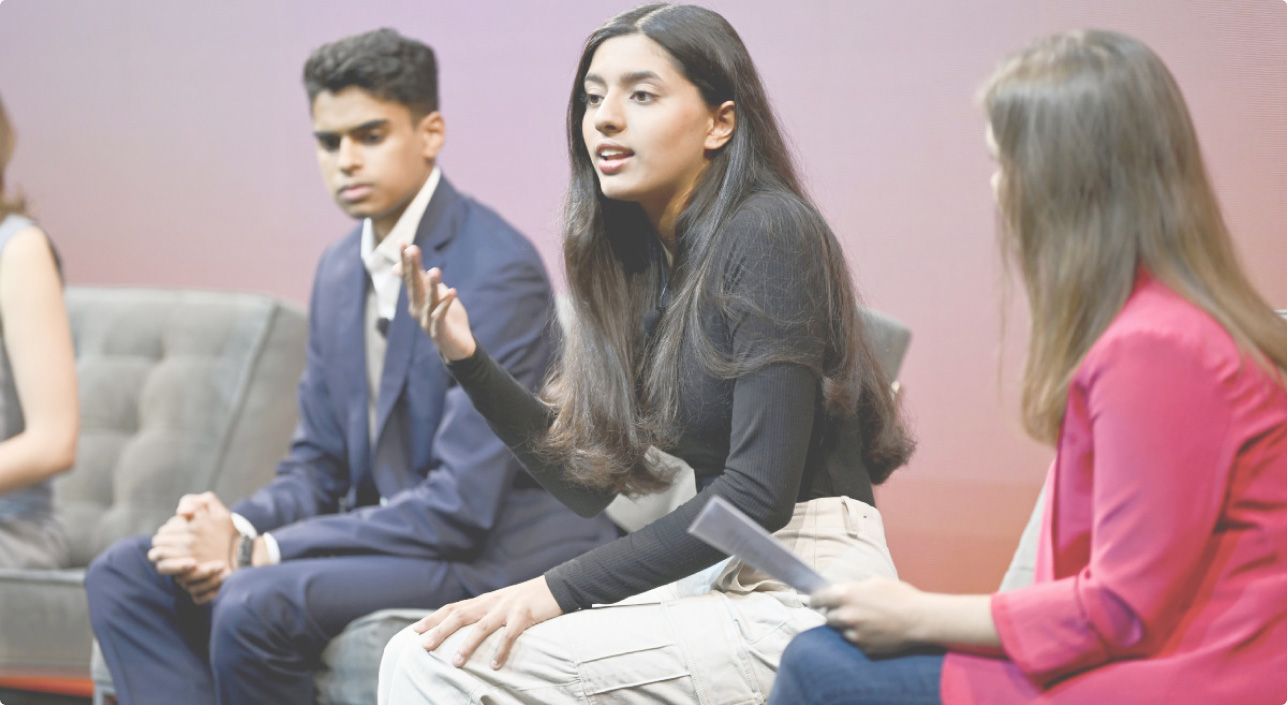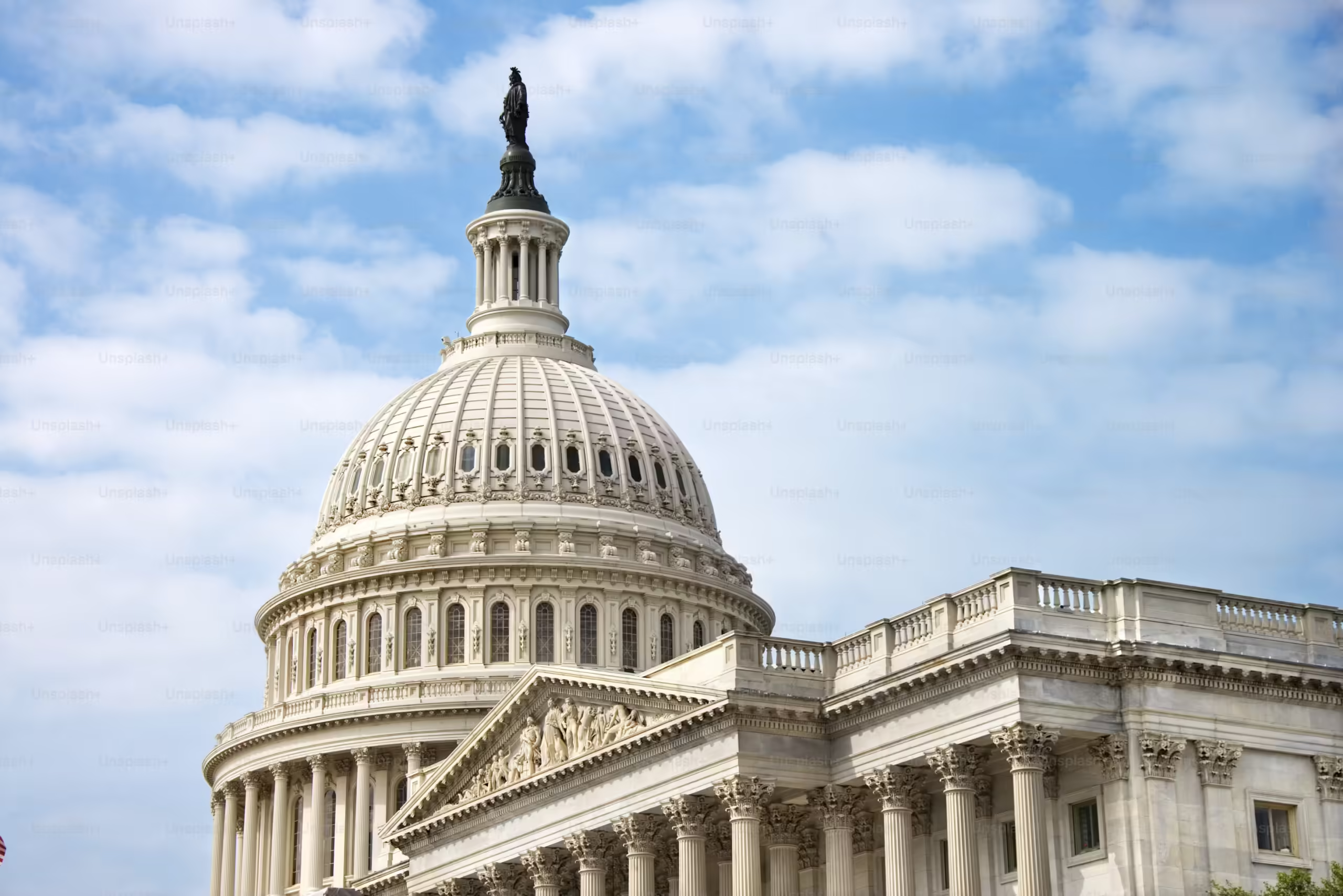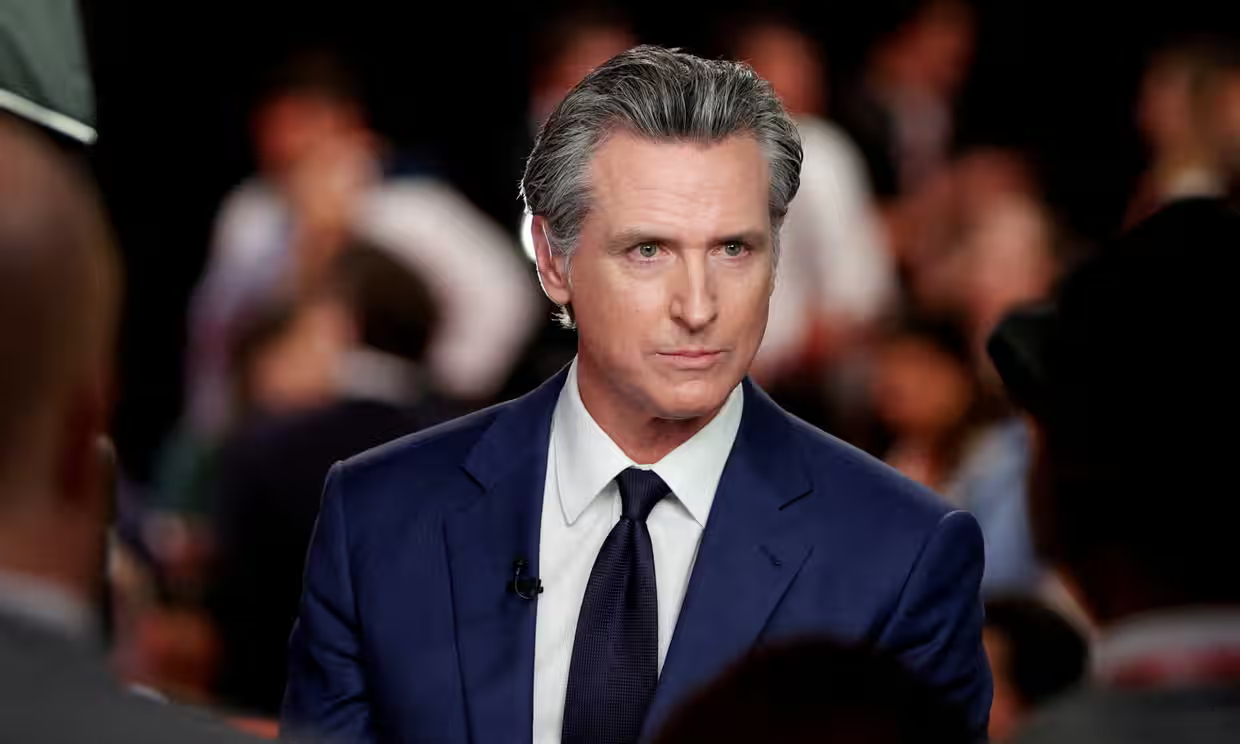Parents just don’t understand … the risks of generative artificial intelligence. At least according to a group of Zoomers grappling with this new force that their elders are struggling to regulate.
While young people often bear the brunt of new technologies, and must live with their long-term consequences, no youth movement has emerged around tech regulation that matches the scope or power of youth climate and gun control activism.
That’s starting to change, though, especially as concerns about AI mount.
Earlier today, a consortium of 10 youth organizations sent a letter to congressional leaders and the White House Office of Science and Technology Policy calling on them to include more young people on AI oversight and advisory boards.
The letter, provided first to DFD, was spearheaded by Sneha Revanur, a first-year student at Williams College in Massachusetts and the founder of Encode Justice, an AI-focused civil society group. As a charismatic teenager who is not shy about condemning “a generation of policymakers who are out of touch,” as she put it in an interview, she’s the closest thing the emerging movement to rein in AI has to its own Greta Thunberg. Thunberg began her rise as a global icon of the climate movement in 2018, at the age of 15, with weekly solo protests outside of Sweden’s parliament.
A native of San Jose in the heart of Silicon Valley, Revanur also got her start in tech advocacy as a 15-year-old. In 2020, she volunteered for the successful campaign to defeat California’s Proposition 25, which would have enshrined the replacement of cash bail with a risk-based algorithmic system.
Encode Justice emerged from that ballot campaign with a focus on the use of AI algorithms in surveillance and the criminal justice system. It currently boasts a membership of 600 high school and college students across 30 countries. Revanur said the group’s primary source of funding currently comes from the Omidyar Network, a self-described “social change venture” led by left-leaning eBay founder Pierre Omidyar.
Revanur has become increasingly preoccupied with generative AI as it sends ripples through societies across the world. The aha moment came when she read that February New York Times article about a seductive, conniving AI chatbot. In recent weeks, concerns have only grown about the potential for generative AI to deceive and manipulate people, as well as the broader risks posed by the potential development of artificial general intelligence.
“We were somewhat skeptical about the risks of generative AI,” Revanur says. “We see this open letter as a marking point that we’re pivoting.”
The letter is borne in part out of concerns that older policymakers are ill-prepared to handle this rapidly developing technology. Revanur said that when she meets with congressional offices, she is struck by the lack of tech-specific expertise. “We’re almost always speaking to a judiciary staffer or a commerce staffer.” State legislatures, she said, tend to be worse.
One sign of the generational tension at play: Today’s letter calls on policymakers to “improve technical literacy in government.”
The letter comes at a time when the fragmented youth tech movement is starting to coalesce, according to Zamaan Qureshi, co-chair of Design It For Us Coalition, a signatory of the AI letter.
“The groups that are out there have been working in a disjointed way,” Qureshi, a junior at American University in Washington, said. The coalition grew out of a successful campaign last year in support of the California Age Appropriate Design Code, a state law governing online privacy for children.
To improve coordination on tech safety issues, Qureshi and a group of fellow activists launched the Design It For Us Coalition at the end of March with a kickoff call featuring advisory board member Frances Haugen, the Facebook whistleblower. The coalition is currently focused on social media, which is often blamed for a teen mental health crisis, Qureshi said.
But it’s the urgency of AI that prompted today’s letter.
So, is this the issue that will catapult youth tech activists to the same visibility and influence of other youth movements?
Qureshi said he and his fellow organizers have been in touch with youth climate activists and with organizers from March for Our Lives, the student-led gun control organization.
And the tech activists are looking to push their weight around in 2024.
Revanur, who praised President Joe Biden for prioritizing tech regulation, said Encode Justice plans to make an endorsement in the upcoming presidential race, and is watching to see what his administration does on AI. The group is also considering congressional and state legislative endorsements.
But endorsements and a politely-worded letter are a far cry from the combative — and controversial — tactics that have put the youth climate movement in the spotlight, such as a 2019 confrontation with Democratic Sen. Dianne Feinstein inside her Bay Area office.
Tech activists remain open to the adversarial approach. Revanur said the risks of AI run amuck could justify “more confrontational” measures going forward.
“We definitely do see ourselves expanding direct action,” she said, “because we have youth on the ground.”



